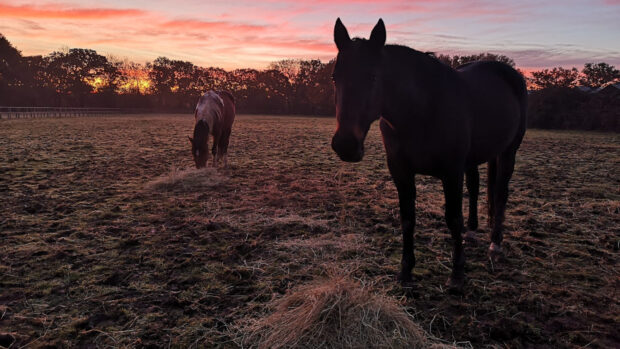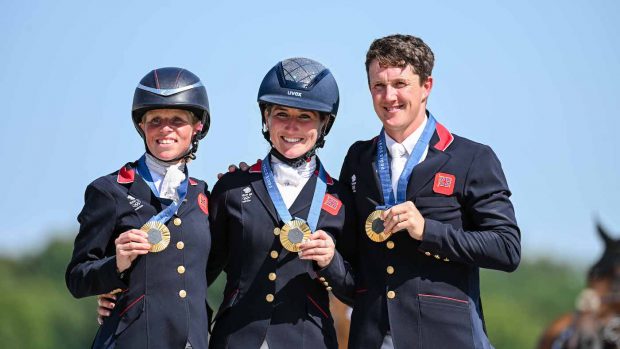Biodegradable bale wrap is being trialled in the UK with hopes of reducing single-use plastics, as equestrian businesses progress “in the pursuit of eco-credentials”.
The project, being led by the non-for-profit research network Innovative Farmers, aims to find a solution to the 135,000 tonnes of agricultural plastic waste produced in the UK annually. In a one-year trial, farmers from 12 sites across England, Scotland and Wales have wrapped hay bales using twine from sisal, “a cactus-like plant that was widely used before plastic became popular”.
The sisal-wrapped bales will be lab-assessed in March and November 2025 to test protein and sugar content, and compare the dryness of the hay under different conditions.
Innovative Farmers field lab coordinator Stuart Oates, who aims to remove all plastics from his farm, said early experiments have shown that sisal is “incredibly strong and quick to process”.
“It’s a win for us and the environment,” he said. “Small steps can lead to huge change – we want to see if this can be applied on a larger scale, so we’re encouraging farmers to see how sisal can work for them.”
Postal parasite control company Westgate Laboratories have taken a number of green steps in recent years, including investing in environmentally friendly packaging. Last month, the company announced a “momentous breakthrough in the pursuit of our eco-credentials” in the launch of faecal sample pots made from a “cutting-edge biomaterial” that is compostable, instead of single-use plastic.
A Westgate spokesperson said that after the new sample pots have been processed, they can be composted on the farm’s muck heap, along with the returned pouches, envelopes and letterbox packs. Cardboard and paperwork is recycled by a local confidential waste company, and the company estimates the combined effort will reduce Westgate’s waste to landfill by 90%.
“This is the final piece of the puzzle to making our range of test kits 100% sustainable, compostable and zero waste. We took a big risk on the investment, but we couldn’t be happier with the result,” said Westgate marketing and communications director Claire Shand, adding that the company “cares deeply” about the climate crisis, decline of countryside wildlife and the impact of marine plastic pollution.
“As a business, we feel we have a responsibility to mitigate our environmental impact as much as possible, and this is certainly a win. It’s not about being perfect but doing what we can. Reusing, recycling, buying from ethical companies where there is a choice, it doesn’t have to cost the earth, but each one makes a difference.”
This summer, equine feed manufacturer Dengie achieved “green status” from national environmental accreditation scheme Investors in the Environment, for a second year. The scheme assesses five key areas: environmental policy, resource management and monitoring, progress against targets and action planning.
- To stay up to date with all the breaking news throughout Maryland, Pau, London International and more, subscribe to the Horse & Hound website
You may also be interested in:

‘You can’t carbon-offset your way out of this’: the steps horse sport needs to take for a secure future

How being greener could protect our horses, land and sport

Subscribe to Horse & Hound magazine today – and enjoy unlimited website access all year round





